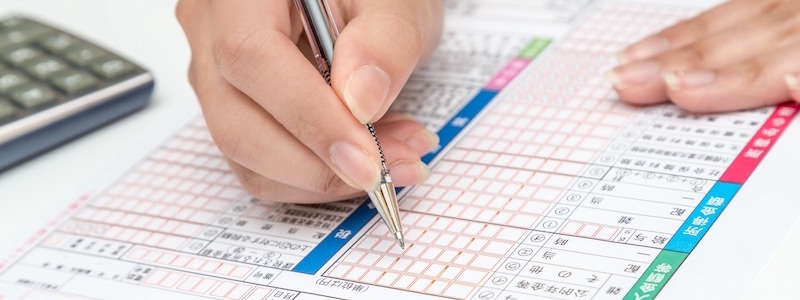In Japan, the main types of tax you will have to pay are income tax and residence tax. The consumption tax (Shohi-zei) rate is 10%, except for food stuffs and drink items (excluding alcohol) that rate is 8%. There are also taxes for owning cars and property.
Table of Contents
Consumption Tax (Shohi-zei)
Consumption tax rate is 10%. Most food and drink items (excluding alcohol) will retain the lower 8% rate. Take-out and delivery from restaurants will have the lower rate, while eating in will be subject to the 10% rate.Tipping is not necessary.
However, a service charge of 10-15% will be automatically included in the bill at many restaurants.
Income Tax (Shotoku-zei)
Income taxes in Japan are determined by the following criteria:
- Status of Residence (Non-Permanent Resident, Permanent Resident, or Non-Resident).
- Source of Income (paid in Japan or paid outside of Japan).
- Total taxable income earned.
Individual income tax is based on the self-assessment system, but if you are working for a company, the tax will automatically be deducted from your salary based on expected earnings. You will be required to fill in a form at the end of the year specifying if you have any additional sources of income or tax deductible expenses. The difference between the estimated and actual tax amount is added to or deducted from future pay checks.
If you are not working for a company, it is your personal responsibility to file a tax return once a year. Salaried employees should fill in the form if they had medical expenses over JPY100,000, had a loan, had a period of unemployment, had non-salary earnings of over JPY200,000, bought a house or made charitable donations during the previous tax year. The tax year runs from January to December, and tax returns for the previous year should be filed by the middle of March (Kakutei-Shinkoku).
Many countries have a tax treaty with Japan, so that you do not have to pay income tax in both Japan and your home country. For more details, contact the tax authority of your home country.
Residence Tax (Jumin-zei)
You are required to pay residence tax if you have been living, or plan to live in Japan for more than 1 year. Therefore, if you are employed by a company, you will be required to pay. You should pay tax to the municipality in which you were living on January 1. In most cases, it will be automatically deducted from your salary. Others will have bills mailed to them, which should be paid by the due date. Failure to pay residence tax can lead to trouble when it comes to renewing your visa.
Corporate Tax (Houjin-zei)
See Corporate Tax section for details.
Property Tax (Kotei-Shisan-zei)
Land and housing owners must pay a fixed asset property tax of 1.4% of the city’s assessed value of the land or building, though smaller plots of land and land used for residential purposes may be taxed a discounted rate. The amount owed is decided on January 1st each year, and bills are sent out around May.
